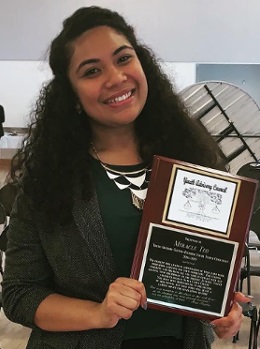![]() One of my favorite memes says, “Accountability feels like an attack when you’re not ready to acknowledge how your behaviors harm others.” Probation officers (POs) and youth share the responsibility for their own actions, as well as the actions of one another. Accountability isn’t easy, but it isn’t impossible. With POs modeling what it looks like to be accountable, it will set the example for youth to follow. Below I’ve narrowed it it down to three simple, but significant steps:
One of my favorite memes says, “Accountability feels like an attack when you’re not ready to acknowledge how your behaviors harm others.” Probation officers (POs) and youth share the responsibility for their own actions, as well as the actions of one another. Accountability isn’t easy, but it isn’t impossible. With POs modeling what it looks like to be accountable, it will set the example for youth to follow. Below I’ve narrowed it it down to three simple, but significant steps:
Show up
I had both a negative and positive experience with probation officers. The distinction between these two experiences was that my first PO only showed up for work, while my second PO (PO Choi) showed up to work and showed up for me. Due to me being treated like another case number by my first PO, I had more of a negative view on probation officers and projected that onto PO Choi.

Miracle Te'o
When we first met I was standoffish. In spite of me being like that, it didn’t bother him or cause him to shut down, and instead he was persistent to get through the wall of distrust I’ve built. It was after we met a few times when I realized how in each meeting he was superpresent. When I would respond with little to nothing to his questions, he’d compliment the pair of Jordans I was wearing or how he can tell that my favorite color is green because I'd always wear that color.
By him paying attention to those small details about me, that let me know he saw me for me and not for what was written about me. That was the key to me opening up, so I began to share with him my needs and struggles. Through him actively listening to me, he knew exactly what resources and tools I needed. He provided me his time, attention and support.
Show your hand
In my first meeting with PO Choi, he was transparent with me about his intentions and expectations. He let me know his why behind becoming a probation officer, which grounded me in the kind and genuine PO that he was. Then, he shared his intentions with me of how he wanted to help me change the trajectory of my life.
When it came to his expectations, he only had two and that was to be honest and communicate with him. Through him exemplifying what honest communication looks like by showing me his hand, this also showed me that he was trustworthy. With trust, it was simpler than I initially thought for me to live up to those expectations.
PO Choi initiated and invested in having a rapport with me and because of that I no longer felt alone. Instead, I felt empowered to overcome the obstacles before me because we worked as a team.
Show your teeth
I entered the system at age 16 on low offenses. I was considered “low risk” and I believe it was because of this label that my first probation officer didn't feel the need to establish a rapport with me. Regardless of my low offenses, this approach of no rapport meant no trust, and no trust meant no communication.
That is the recipe for any youth to fail probation. I ended up going deeper in the system when I didn’t need to. When I shared the negative experience with my first PO in greater detail with PO Choi, he showed his teeth and got angry.
Now, anger isn’t just a negative emotion. It has valuable qualities that can be beneficial in a positive way. Therapist Moshe Ratson noted in his article, “The Value of Anger: 16 Reasons It’s Good to Get Angry,” how anger makes us aware of injustice. PO Choi was upset at the injustice I faced, which showed me more of how much he cares. He didn’t belittle my experience, and instead acknowledged how the unjust behavior made me feel.
His reaction and response caught me a bit off guard because I had already gotten used to the lie of everything being my fault. He helped me realize that although I too have a responsibility when it comes to how my experience on probation can be, it’s not completely on me and is supposed to be a shared responsibility with the probation officer. With his anger being justified and response being appropriate, he demonstrated what that responsibility looks like and advocated on my behalf to get the justice I deserved.
With these three steps, youth will feel and see that their PO is actually with them and not against them. Probation officers have the power to show youth that they have the power to change their life around for the better. Accountability is a two-way street that youth are only able to meet through probation officers being diligent.
To all probation officers,understand that this cannot be done if you don’t first show up, show your hand and show your teeth.
As a youth justice consultant, I’m passionate about using my story to reform the juvenile justice system and encourage youth who are currently navigating the system to find their voice. Youth are more than their past mistakes, and they each have a unique story that can change their own trajectory but also the trajectory of the system.
Miracle Te'o is a National Youth Advisory Council member for the Juvenile Justice Strategy Group of the Annie E. Casey Foundation and youth representative to the Juvenile Justice Systems Collaborative in Santa Clara, California. She is also a youth justice consultant trainer for the Santa Clara County Youth Advisory Council.
This post originally appeared on JDAIconnect.org.
